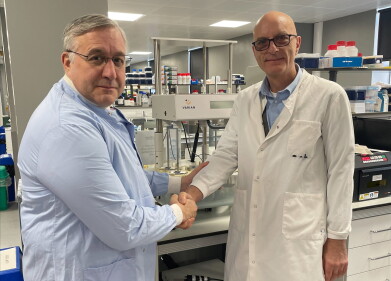News
What Are Cannabis Derivatives?
Dec 05 2021
Cannabis, otherwise known as marijuana, is an illegal class B drug in the UK, carrying a penalty of imprisonment of up to five years and an unlimited fine for those caught in possession. However, certain products made with derivatives of the drug are perfectly legal (when meeting the appropriate standards) and there are even claims that they could be helpful in combatting diseases.
In particular, there is a growing body of evidence which suggests that cannabidiol – or CBD – could be effective in treating and providing therapeutic relief for the symptoms of brain tumours in cancer patients. As well as reducing nausea and preventing vomiting, the calming effects of CBD have been found to be beneficial for those battling the disease. At this stage, there is limited evidence that cannabis derivatives can actually treat the tumours themselves, but research into this possibility is ongoing.
CBD vs THC
Of the many parts of the cannabis plant (or cannabinoids), two in particular are of interest to medical science. These are the aforementioned CBD and delta-9 tetrahydrocannabinol (THC), which is responsible for the psychoactive effects of using cannabis, as well as its addictive properties. All products containing more than 0.2% THC are banned in the UK without a prescription, though CBD-based products – as long as they have been analysed in a laboratory setting and meet EU standards – can be bought over the counter without prescription.
Cannabis derivates are generally products which contain one of these two cannabinoids. Certain medicines, like Nabilone and Sativex, are available upon prescription by healthcare professionals. Other products, like CBD oil and hemp oil, are sold as food supplements, but manufacturers are not allowed to advertise health benefits as yet. More products still, such as cannabis oil and cannabis itself, are illegal in the UK altogether.
Cannabis derivates as cancer treatment
There is some limited evidence from preliminary studies that both CBD and THC can prevent the flow of blood to glioblastoma (GBM) cells, thus causing them to die. Sativex has received preliminary approval on this basis, with certain studies suggesting that it may be effective in treating troublesome GBM cells which keep recurring. Further research into this possibility is currently ongoing, though THC remains outlawed in most scenarios in the UK.
However, there is much more evidence that CBD products are capable of treating the side-effects of cancer treatments such as chemotherapy. Those undergoing this invasive treatment have historically complained of prolonged nausea and frequent vomiting and CBD has been proven to provide relief from both of those unpleasant incidences. However, it is of course essential that prior to taking any cannabis derivatives, patients make sure that they are free from contaminants such as heavy metals and that they are concurrent with any other medication or treatment they may be receiving.
Digital Edition
Lab Asia 32.2 April
April 2025
Chromatography Articles - Effects of small deviations in flow rate on GPC/SEC results Mass Spectrometry & Spectroscopy Articles - Waiting for the present to catch up to the future: A bette...
View all digital editions
Events
Apr 22 2025 Hammamet, Tunisia
Apr 22 2025 Kintex, South Korea
Analytica Anacon India & IndiaLabExpo
Apr 23 2025 Mumbai, India
Apr 23 2025 Moscow, Russia
Apr 24 2025 Istanbul, Turkey



















